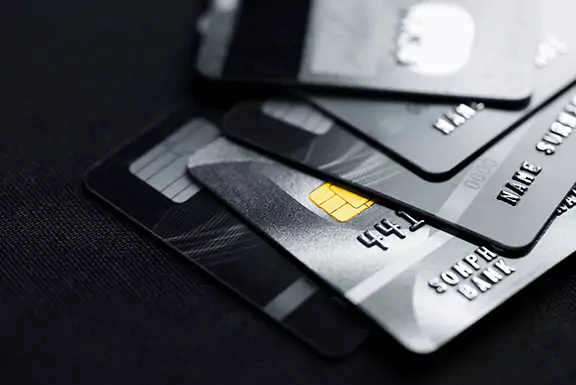Managing credit card debt can be a challenge, especially when you’re on a fixed income. Whether you’re relying on Social Security, a small pension, or a limited salary, making ends meet while trying to pay off credit card debt can feel overwhelming. High interest rates and monthly payments can quickly eat into your budget, making it difficult to see a way out.
But don’t worry—you’re not alone, and there are steps you can take to regain control of your finances. We’ll provide a step-by-step guide to help you pay off credit card debt on a fixed income. From assessing your financial situation to creating a realistic budget, these strategies will help you manage your debt and work towards a debt-free life.
Step 1: Assess Your Financial Situation
The first step in paying off credit card debt is to assess your financial situation. Understanding where you stand financially can help you create a clear plan to tackle your debt.
List All Your Debts: Start by making a list of all your credit card debts. Include the balance, interest rate, and minimum monthly payment for each card. This will give you a clear picture of how much you owe and to whom.
Track Your Income and Expenses: Write down all sources of income, including any fixed payments you receive, such as Social Security or pension. Then, list all your monthly expenses, including rent, utilities, groceries, and other living expenses. Don’t forget to include variable expenses like entertainment or dining out.
Calculate Your Cash Flow: Subtract your total monthly expenses from your total monthly income. This will show you how much money you have left each month to put towards paying off your credit card debt.
Identify Problem Areas: Look for areas where you might be overspending. Are there any expenses you can cut back on or eliminate entirely?
Step 2: Create a Realistic Budget
Creating a realistic budget is essential for managing your finances and paying off credit card debt on a fixed income. A budget helps you plan your spending, prioritize your debt payments, and avoid new debt.
Set Priorities: Prioritize your expenses by necessity. Fixed expenses like housing and utilities should come first. After that, allocate funds to essential variable expenses like groceries and transportation. Finally, consider how much you can reasonably allocate to discretionary spending.
Allocate Funds for Debt Repayment: Determine how much you can afford to pay towards your credit card debt each month. Aim to pay more than the minimum payment whenever possible, as this will help you reduce your balance faster and save on interest.
Adjust Your Spending: Look for ways to cut back on non-essential expenses. This might mean dining out less often, canceling subscription services, or finding cheaper alternatives for everyday items.
Stick to Your Budget: Once you’ve created your budget, it’s important to stick to it. Track your spending regularly to ensure you’re staying within your limits and making progress toward paying off your debt.
Step 3: Reduce Your Interest Rates
Reducing the interest rates on your credit card debt can make a big difference in how quickly you can pay it off. High-interest rates can make your monthly payments feel like they’re barely making a dent in your balance. Here are some strategies to help you lower those rates:
Negotiate with Credit Card Companies
Call your credit card companies and ask for a lower interest rate. Explain your situation and how a lower rate would help you manage your debt better. It might seem daunting, but many companies are willing to work with you if you ask.
Consider a Balance Transfer Credit Card
If you have good credit, you might qualify for a balance transfer credit card with a 0% introductory APR. This allows you to transfer your high-interest balances to a new card and pay no interest for a set period, usually 12 to 21 months. Just make sure to pay off the balance before the introductory period ends to avoid high-interest rates.

Step 4: Minimize Unnecessary Expenses
Cutting back on unnecessary expenses is essential when you’re trying to pay off credit card debt on a fixed income. Every dollar saved is a dollar that can go towards reducing your debt. Here’s how you can trim your budget:
Find Cheaper Alternatives: Look for less expensive alternatives for everyday items. For example, switch to generic brands for groceries and household products.
Limit Impulse Purchases: Avoid impulse buying by making a shopping list and sticking to it. If you’re tempted to buy something not on the list, wait 24 hours before making the purchase.
Reduce Utility Bills: Save on utilities by being more energy-efficient. Turn off lights and appliances when not in use, take shorter showers, and adjust your thermostat to save on heating and cooling costs.
Plan Your Meals: Plan your meals for the week and make a grocery list based on what you need.
Step 5: Find Ways to Increase Your Income
Increasing your income, even temporarily, can help you pay off your credit card debt faster. Here are some ways to boost your income:
Take on a Side Job
Sell Unused Items
Offer Services like House Cleaning
Rent Out Space
Consider Donating Plasma
Step 6: Get FREE Cell Phone and Data Service with EASY Wireless through the Lifeline Program
Reducing your monthly expenses can free up more money to pay off your credit card debt, and one way to do this is by taking advantage of the Lifeline program. This federal assistance program offers discounts on cell phone and data service to eligible low-income households, helping you stay connected without the extra cost.
EASY Wireless is a Lifeline Program provider offering free cell phone service with Talk, Text, and Data.
Click to see if you’re eligible for FREE Cell Phone Service from EASY Wireless.
Step 7: Seek Professional Help if Needed
Sometimes, managing credit card debt on your own can feel overwhelming. If you’re struggling to make progress, seeking professional help can provide the support and guidance you need.
Credit Counseling Services: Credit counseling services offer expert advice and can help you create a personalized debt repayment plan. A certified credit counselor will review your financial situation, help you understand your options, and work with you to develop a plan to pay off your debt.
Debt Management Plans: A debt management plan (DMP) consolidates your credit card debt into a single monthly payment. Your credit counselor will negotiate with your creditors to lower interest rates and monthly payments.
Debt Consolidation Loans: If you have multiple credit card accounts with high interest rates, a debt consolidation loan can help. This loan combines all your debts into one loan with a single monthly payment, often at a lower interest rate.
Debt Settlement: If your debt is overwhelming and you can’t see a way out, debt settlement might be an option. This involves negotiating with your creditors to pay a lump sum that is less than the total amount you owe.
Bankruptcy: As a last resort, filing for bankruptcy can provide relief from overwhelming debt. This legal process can help you eliminate or repay your debts under the protection of the bankruptcy court. It has serious long-term consequences for your credit score and should only be considered after exploring all other options.
Seeking professional help can provide you with the tools and support needed to effectively manage and pay off your credit card debt.
Financial Counseling Association of America (FCAA)
EASY Wireless readers can access free credit counseling assessments with the nonprofit group, Financial Counseling Association of America (FCAA).
Click to learn more about how FCAA can help you get out of credit card debt and get back on the path to financial stability.
Get Help Reducing Your Debt
- FREE Consultation
- No Sign Up Fee
- No Obligation
Take the First Step Today
Paying off credit card debt on a fixed income is challenging, but it’s not impossible. By following these steps, you can take control of your finances and work towards a debt-free life. Start by assessing your financial situation and creating a realistic budget.
Remember, every small step you take towards managing your debt brings you closer to financial freedom. Stay committed, be patient, and keep making progress. With determination and the right strategies, you can pay off your credit card debt and achieve financial stability.


